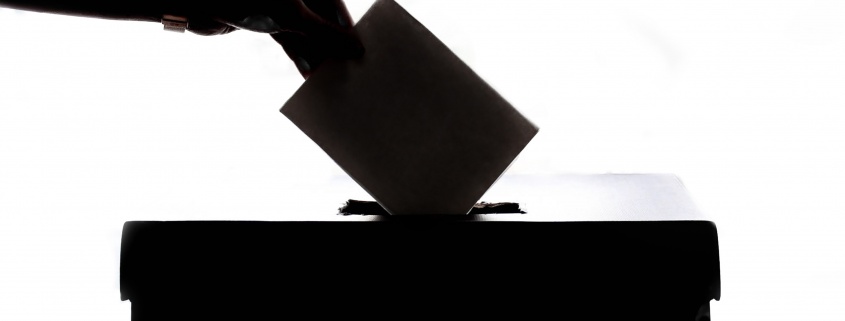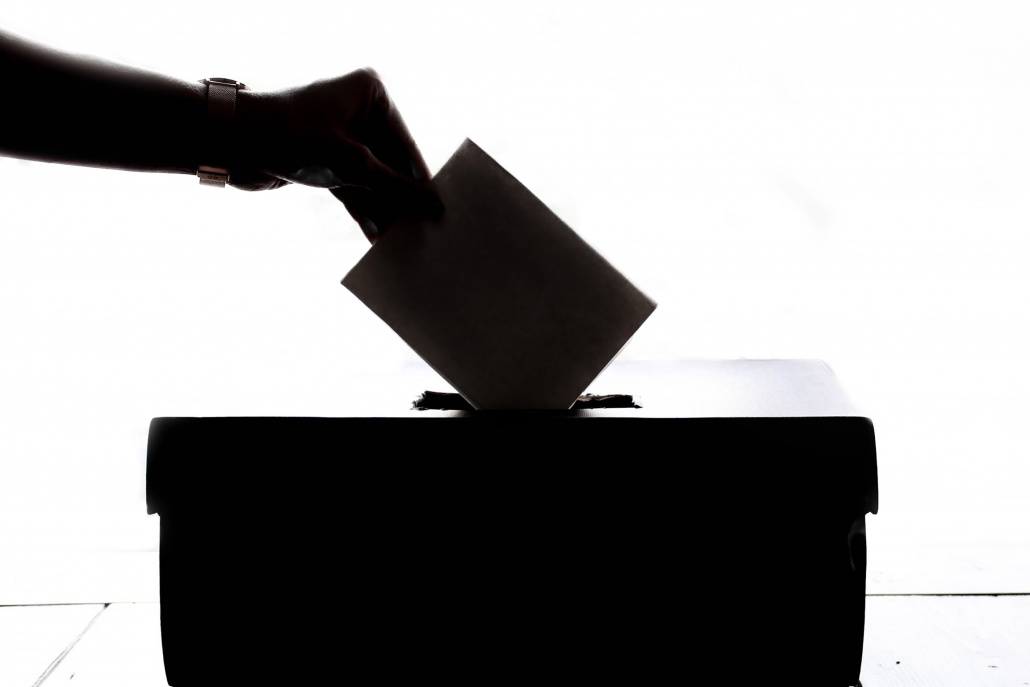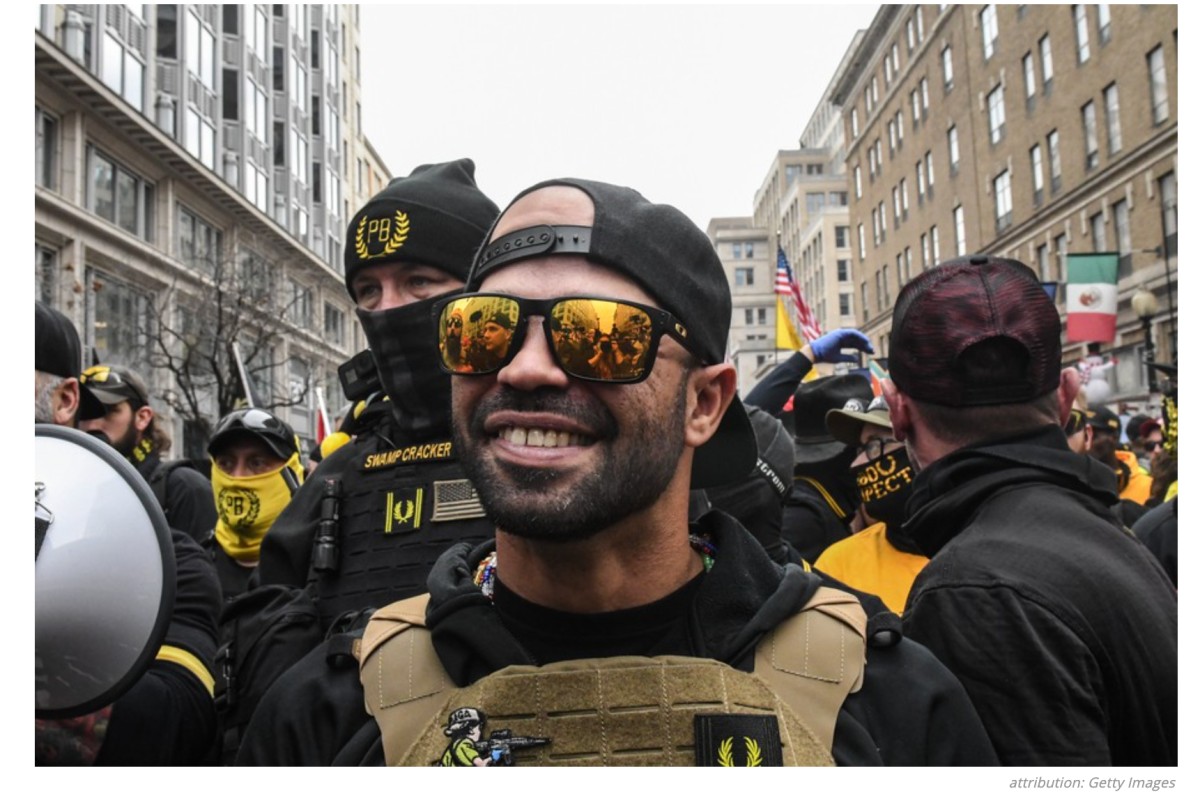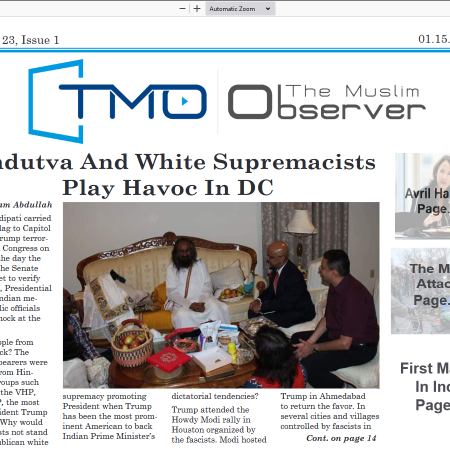The Future of Democracies and Human rights
by Basheer Ahmed, M.D.
Chairman Emeritus, MCC for Human services
The rise of authoritarianism in the US is diminishing its leadership role in protecting human rights and promoting democracy around the world. Saudi Arabia’s Human Rights crises and the developing story of Mr. Jamal Khashoggi’s disappearance is clear evidence of this lack of support for human rights in US.
Jamal Khashoggi, a Washington Post columnist, came from a rich family in Saudi Arabia who were close to the inner circle of the Saudi Royal family. He went to the Saudi consulate in Istanbul, Turkey to get copies of his divorce papers on October 2, 2018, and never came out. Turkish authorities believe that Khashoggi was killed at the Saudi consulate. The Turkish government told U.S. officials that it obtained video and audio recordings proving this allegation. (Shane Harris 10 11 2018/Washington post 10/11/18)
Khashoggi was deeply afraid of his country’s rulers, and of being targeted by Crown Prince Mohammed bin Salman during the months before his disappearance. Because he did not want to stay in Saudi Arabia without freedom to write and publish, he imposed self-exile, staying in the US on a permanent visa. He missed his family in Saudi Arabia, and the Saudi government imposed a travel ban on his son. Khashoggi wrote in The Washington Post in May 2018, “Do we only voice glowing references to our leader’s decisions, his vision of our future, in exchange for the right to live and travel freely—for ourselves and our wives, husbands, and children. (“Jamal Khashoggi Washington Post May 21, 2018)
Jamal Khashoggi wrote a regular opinion column for The Washington Post in which he criticized the Saudi government’s jailing of clerics, businessmen, and academics, among others. Khashoggi also criticized the Saudi-led war in Yemen, which caused the world’s worst humanitarian crisis, and its diplomatic breakdown with the kingdom of Qatar during which Qatari citizens and businesses were given only twenty-four hours notice to leave Saudi Arabia. Khashoggi also criticized the Saudi regime’s diplomatic breakdown with Canada after the Canadians criticized the arrest of women’s rights activists. Saudi Arabia retaliated by expelling Canada’s ambassador, withdrawing its own envoy from Ottawa, and other punitive measures. Another of the crown prince’s recent clampdowns included death sentences for three prominent clerics, 48 beheadings during the first four months of 2018, and an unprecedented arrest of women’s rights activists. Crown Prince Mohammed bin Salman sought authority to behead a female activist for nonviolent offenses, which included protests against the government.
Mohammed Bin Salman began a reformation in Saudi Arabia, and he became a key strategic partner to Jared Kushner, who is US President Donald Trump’s son-in-law and senior adviser. Although he made attempts at modernization, Saudi Arabia rejected any form of democracy. Khashoggi stated that this rejection originated from Mohammed Bin Salman’s deep belief that absolute monarchy is the best way to govern a country. Democracy in the region is also under attack from Salafists, extremists, and terror groups like ISIS and Al-Qaeda.
Khashoggi stressed that the only way to overcome conflict in the Middle East is to choose the path of democracy and rise above sectarianism. He pointed out that the lack of interest on the part of the current U.S. administration in defending democracy in the region makes it harder for activists and NGOs to continue their missions and their support for a democratic system. The monarchies are especially worried about democratic movements in Egypt because they’re certain they will have a long-term impact on their regimes. Jamal Khashoggi “Why the Arab world needs democracy now more than ever”. Authoritarianism and Democratic Decline: In the Age of Sectarianism and Populism CSID’s conference in April 2018)
Khashoggi was working to launch a pro-democracy advocacy group and a non-governmental organization whose stated purpose was to boost democracy and human rights in the Arab world. Democracy for the Arab World Now (DAWN), was incorporated in January 2018. The group intended to push for democratic change even when it ran counter to American foreign policy goals. “Free and fair elections may result in some governments that are less favorable to U.S. interests,” a statement from the group read. “Regardless, America must respect democratic processes.” Khashoggi didn’t voice any intention to overturn governments. Instead, he focused on expanding the rights of people living in the region. “I do not want to overturn the Al Saud government. I do not want to replace them with another regime. I just want freedom of expression for the people. We’re in the 21st century; we have to keep up with the rest of the world.(Jamal Khashoggi Wanted to Launch a Pro-Democracy Group. Then the Saudis Disappeared Him. Betty woodruff –www.the dailybeast.com)
If the international community does not take a stand, Bin Salman will continue to assassinate Saudi dissidents, international journalists, and other diplomats.
The US government does not want to take action yet. They point out that Mr. Khashoggi was not a US citizen, that they are investigating his disappearance, and that they will wait for the outcome. President Trump claims that U.S. relations with Saudi Arabia are “excellent,” and he is not considering withholding arms sales to Saudi Arabia.
“The Saudis are spending $110 billion purchasing military equipment and other things. If we don’t sell it to them, they’ll say, ‘Well, thank you very much. We’ll buy it from Russia—or China.’ That doesn’t help us—not when it comes to jobs and not when it comes to our companies losing out on that work. It would be a very, very tough pill to swallow for our country,” NBC News.
Further, it was an insult to Mr. Khashoggi’s noble work when Donald Trump Jr. made a statement tying Mr. Khashoggi to Islamic terrorism by saying that Khashoggi was among a number of journalists who interviewed Bin Laden in the 1980s. During that time, Bin Laden had been recruited by the CIA to train Mujahideen (Taliban) to fight against the USSR which occupied Afghanistan. They were honored by the US government, and Mr. Reagan invited the Taliban to the White House to recognize their work as freedom fighters.
Protesting the Saudi’s suspected role in the disappearance of journalist Jamal Khashoggi, some major media companies are pulling out of a high-profile event, “The Future Investment Initiative (FII),” an investment conference hosted by Saudi Arabia’s sovereign wealth fund, (Los Angeles Times, CNBC anchor and New York Times columnist Andrew Ross Sorkin, New York Times and Bloomberg would no longer appear at the event. Maxwell.Tani@thedailybeast.com)
Saudi Arabia is establishing a new role as one of Silicon Valley’s most prominent investors. Will its investments purchase silence from companies that pride themselves on openness and freedom? (Anand Giridharadas, New York Times 10/12/18) Will more business leaders and news organizations of conscience withdraw from the Public Investment Fund-powered conference?
What can we do when a country silences its human rights abuses by their enormous wealth by influencing major businesses like Amazon, Uber, Facebook and multiple companies in the Silicon Valley as well as the US Government which likes to honor its contracts to make billions of dollars? So far, the evidence suggests that the Saudis have murdered a prominent dissident inside one of its embassies, the Russians have killed their critics, and the Pakistanis have been killing their dissidents for years. The US used to be a staunch supporter of human rights, but the Trump administration is abandoning this role. Being the leader, the rest of the world look towards the US for guidance when protecting human rights and unfortunately Mr. Trump has apparently given up this role.
Freedom fighters and people against the world’s authoritarian regimes seek leadership from the U.S. The credibility of the American president is in question due to his dealings with dictators around the world who abuse human rights. These dictators are encouraged by his tolerance for their blunders. The Saudis need American backing, technology, intelligence and arms and it’s in America’s best interest to keep this relationship. Still, America can put pressure on Saudi Arabia to stop their human rights violations and still maintain this relationship. Like President Trump said: “There would be no Saudi Arabia if there wasn’t the United States”
The world media broadcasted that the most significant reform process underway in the Middle East today is in Saudi Arabia and this reform will change the message of Islam across the world. However, Khashoggi’s brutal murder tells a different story about Saudi Arabia under MBS – that it is still one of the most oppressive countries in the world. It is time for the US president to put pressure on the Saudi government to stop the Human rights violation
America is supposed to be the torch bearer and protector of human rights and democracy. Let us keep our leadership role in upholding this noble cause.
Dr. Ahmed can be reached at mbahmed05@yahoo.com


















2018
1,216 views
views
0
comments